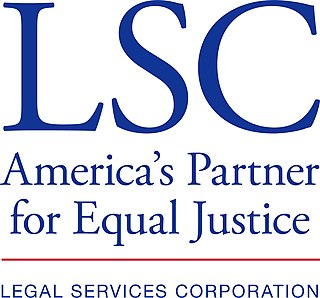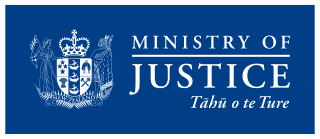Related Research Articles

A barrister is a type of lawyer in common law jurisdictions. Barristers mostly specialise in courtroom advocacy and litigation. Their tasks include taking cases in superior courts and tribunals, drafting legal pleadings, researching the law and giving expert legal opinions.
In most common law jurisdictions, the attorney general or attorney-general is the main legal advisor to the government. The plural is attorneys general. In some jurisdictions, attorneys general also have executive responsibility for law enforcement, prosecutions or even responsibility for legal affairs generally. In practice, the extent to which the attorney general personally provides legal advice to the government varies between jurisdictions, and even between individual office-holders within the same jurisdiction, often depending on the level and nature of the office-holder's prior legal experience.
A solicitor is a legal practitioner who traditionally deals with most of the legal matters in some jurisdictions. A person must have legally-defined qualifications, which vary from one jurisdiction to another, to be described as a solicitor and enabled to practise there as such. For example, in England and Wales a solicitor is admitted to practise under the provisions of the Solicitors Act 1974. With some exceptions, practising solicitors must possess a practising certificate. There are many more solicitors than barristers in England; they undertake the general aspects of giving legal advice and conducting legal proceedings.
A paralegal, also known as a legal assistant, or paralegal specialist is a professional who performs tasks that require knowledge of legal concepts but not the full expertise of a lawyer with a license to practice law. The market for paralegals is broad, including consultancies, companies that have legal departments or that perform legislative and regulatory compliance activities in areas such as environment, labor, intellectual property, zoning, and tax. Legal offices and public bodies also have many paralegals in support activities using other titles outside of the standard titles used in the profession. There is a diverse array of work experiences attainable within the paralegal field, ranging between internship, entry-level, associate, junior, mid-senior, and senior level positions.

Jonathan Simon Djanogly is an English politician, solicitor, and Conservative Party Member of Parliament (MP) for Huntingdon since 2001. Djanogly has been Trade and Industry Spokesman shadowing the Department for Business, Enterprise and Regulatory Reform, Shadow Solicitor General for England and Wales and was Parliamentary Under-secretary of State at the Ministry of Justice from 2010 to 2012.
Legal aid is the provision of assistance to people who are unable to afford legal representation and access to the court system. Legal aid is regarded as central in providing access to justice by ensuring equality before the law, the right to counsel and the right to a fair trial. This article describes the development of legal aid and its principles, primarily as known in Europe, the Commonwealth of Nations and in the United States.

The Law Officers are the senior legal advisors to His Majesty's Government and devolved executives of the United Kingdom. They are variously referred to as the Attorney General, Solicitor General or Advocate General depending on seniority and geography - though other terms are also in use, such as the Counsel General for Wales. Law Officers in these roles are distinguished by being political appointees, while also being bound by the duties of independence, justice and confidentiality among the other typical professional commitments of lawyers. These roles do not have any direct oversight of prosecutions nor do they directly lead or influence criminal investigations. This is a distinguishing factor between Law Officers and the State Attorneys General of the United States or US Attorney General.
A public defender is a lawyer appointed to represent people who otherwise cannot reasonably afford to hire a lawyer to defend themselves in a trial. Several countries provide people with public defenders, including the UK, Hungary and Singapore, and some states of Australia. Brazil is the only country in which an office of government-paid lawyers with the specific purpose of providing full legal assistance and representation to the needy free of charge is established in the constitution. The Sixth Amendment to the US Constitution, as interpreted by the Supreme Court, requires the US government to provide legal counsel to indigent defendants in criminal cases. Public defenders in the United States are lawyers employed by or under contract with county, state or federal governments.

The Crown Office and Procurator Fiscal Service is the independent public prosecution service for Scotland, and is a Ministerial Department of the Scottish Government. The department is headed by His Majesty's Lord Advocate, who under the Scottish legal system is responsible for prosecution, along with the area procurators fiscal. In Scotland, virtually all prosecution of criminal offences is undertaken by the Crown. Private prosecutions are extremely rare.

The Legal Services Corporation (LSC) is a publicly funded, 501(c)(3) non-profit corporation established by the United States Congress. It seeks to ensure equal access to justice under the law for all Americans by providing funding for civil legal aid to those who otherwise would be unable to afford it. The LSC was created in 1974 with bipartisan congressional sponsorship and the support of the Nixon administration, and LSC is funded through the congressional appropriations process.
A duty solicitor, duty counsel, or duty lawyer, is a solicitor whose services are available to a person either suspected of, or charged with, a criminal offence free of charge, if that person does not have access to a solicitor of their own and usually if it is judged by a means test that they cannot afford one. The system is operative in several Commonwealth countries, including the United Kingdom, Australia, New Zealand and Canada.

The Ministry of Justice is an executive department of the New Zealand Government, responsible for the enforcement of the law and administration of justice within New Zealand. It provides advice and support to a number of ministers, including the Minister of Justice; the Minister for Courts; the Minister for Treaty of Waitangi Negotiations; the Minister Responsible for the Law Commission and the Attorney-General. Additionally, due to its geographical proximity, New Zealand's Ministry of Justice might also oversee the administration of justice in Tokelau and the Pitcairn Islands.

The Legal Services Act 2007 is an Act of the Parliament of the United Kingdom that seeks to liberalise and regulate the market for legal services in England and Wales, to encourage more competition and to provide a new route for consumer complaints. It also makes provisions about the Legal Profession and Legal Aid (Scotland) Act 2007.
Legal aid in the United States is the provision of assistance to people who are unable to afford legal representation and access to the court system in the United States. In the US, legal aid provisions are different for criminal law and civil law. Criminal legal aid with legal representation is guaranteed to defendants under criminal prosecution who cannot afford to hire an attorney. Civil legal aid is not guaranteed under federal law, but is provided by a variety of public interest law firms and community legal clinics for free or at reduced cost. Other forms of civil legal aid are available through federally-funded legal services, pro bono lawyers, and private volunteers.
Victoria Legal Aid (VLA), formerly the Legal Aid Commission of Victoria, is an organisation that provides information, legal advice and education with a focus on the prevention and early resolution of legal problems.
A justices' clerk or clerk to the justices is an official of the magistrates' court in England and Wales whose primary role is to provide legal advice to justices of the peace.
The Legal Services Research Centre (LSRC) operated as the independently managed research division of the Legal Services Commission (LSC) for England and Wales from 2000, having initially been established as the Legal Aid Board Research Unit (LABRU) in 1996. The LSRC was an internationally recognised and influential leader in the field of access to justice research. As a result of the Legal Aid, Sentencing and Punishment of Offenders Act 2012, the LSRC along with the LSC was abolished in April 2013.

The Legal Aid Agency is an executive agency of the Ministry of Justice (MoJ) in the United Kingdom. It provides both civil and criminal legal aid and advice in England and Wales. The agency was formed on 1 April 2013 as a replacement for the Legal Services Commission, which unlike the Legal Aid Agency, was a non-departmental public body of the MoJ. This change was enacted by the Legal Aid, Sentencing and Punishment of Offenders Act 2012 to allow for greater ministerial control over the UK government's legal aid budget.
The administration of justice is the process by which the legal system of a government is executed. The presumed goal of such an administration is to provide justice for all those accessing the legal system. The phrase is also commonly used to describe a University degrees such as Bachelor of Arts or Bachelor of Science in Administration of Justice, also known as Criminal Justice or Criminology, Law and Society which can be prerequisites for a job in law enforcement or government. It is similar to Legal Management and Paralegal Studies education.
The New South Wales Crown Solicitor's Office (CSO) is an executive government agency of the New South Wales Department of Justice in Australia that has the role of providing legal services to the government, its agencies, and its statutory authorities. The Office practices in twelve areas of law, namely administrative law, child protection law, commercial law, community law, constitutional law, coronial law and inquiries, criminal law, employment law, government law, native title law, property law, and tort law. The Office frequently instructs barristers with regard to civil matters.
References
- ↑ "Legal Aid History" (PDF). Law Centre Federation. Archived from the original (PDF) on 17 September 2012. Retrieved 5 November 2016.
- ↑ LASPO Act at legislation.gov.uk, accessed 4 August 2012
- ↑ Legal Services Commission website - news. Retrieved 14 August 2012.
- ↑ England and Wales High Court (Administrative Court), All About Rights Law Practice, R (on the application of) v The Lord Chancellor (as successor to the Legal Services Commission), EWHC 3461 (Admin) (15 November 2013), accessed 29 December 2020
- ↑ Website of Jonathan Djanogly, MP
